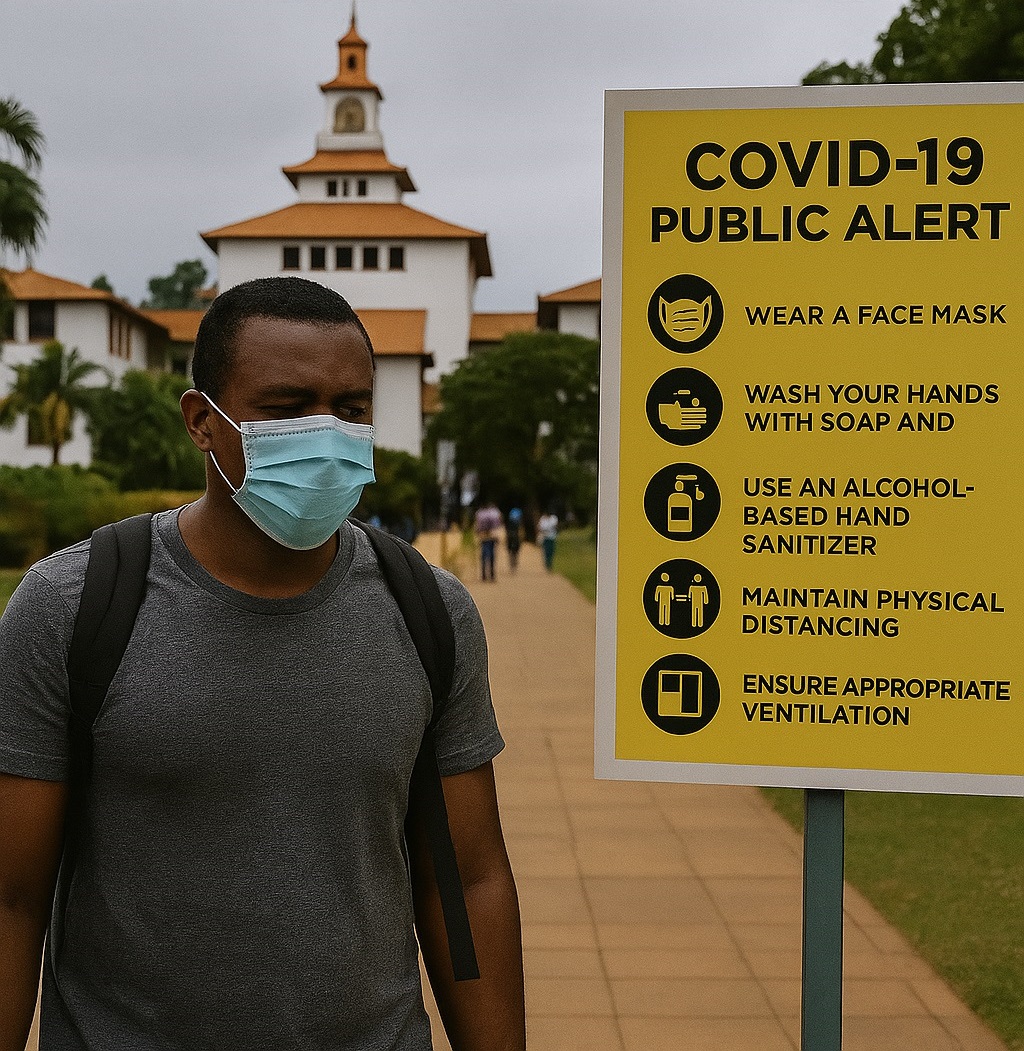COVID-19 Returns to Legon: University of Ghana Grapples with New Wave

COVID-19 Resurgence at the University of Ghana: A Campus on Alert
The University of Ghana, Legon, is once again in the grip of a public health scare as a resurgence of COVID-19 cases has prompted urgent action from university authorities. After a prolonged period of relative calm, the Health Services Directorate issued a public alert on June 23, 2025, confirming both suspected and confirmed cases within the university community.
This development has reignited concerns about the virus’s lingering threat and the readiness of institutions to respond swiftly and effectively.
A Familiar Foe Returns
The resurgence comes at a time when many had begun to view COVID-19 as a chapter closed. With restrictions eased in 2024 and vaccination campaigns tapering off, the virus’s reappearance has caught many off guard. According to the Health Services Directorate, the new cases were detected in and around the Legon campus, prompting the reactivation of the university’s COVID-19 Response Protocols.
These protocols include screening and triage at health facilities, mandatory mask-wearing in enclosed or crowded spaces, and renewed emphasis on hand hygiene and physical distancing.
Preventive Measures Reinforced
In a detailed advisory, the Directorate urged students, staff, and visitors to adhere strictly to safety measures:
-
Wear face masks in lecture halls, offices, and other enclosed spaces.
-
Wash hands frequently with soap under running water or use alcohol-based sanitizers.
-
Maintain a physical distance of at least one metre.
-
Avoid large gatherings unless absolutely necessary.
-
Ensure proper ventilation in classrooms and meeting rooms.
-
Stay home if symptomatic and seek medical attention promptly.
The university has also begun placing handwashing stations across campus and is considering vaccination and testing drives in collaboration with the Ghana Health Service.
A Community Response
Dr. Gordon Abekah-Nkrumah, head of the Health Services Directorate, emphasized the importance of collective responsibility. “We must work together to protect ourselves and our community,” he stated, urging all members of the university to remain vigilant and cooperative.
Student leaders have echoed this sentiment, calling on peers to take the resurgence seriously. “This isn’t just about individual health—it’s about safeguarding our academic calendar and the well-being of our entire campus,” said a representative from the Students’ Representative Council.
Broader Implications
The resurgence at Legon is not occurring in isolation. Globally, health authorities are tracking new variants and sporadic spikes in infections. Ghana’s relatively low booster vaccination rates have raised concerns about the potential for wider outbreaks, particularly in densely populated areas such as universities.
The University of Ghana’s swift response may serve as a model for other institutions navigating similar challenges. However, it also underscores the need for sustained public health vigilance, even in the absence of widespread panic.
Looking Ahead
As the academic year progresses, the university’s ability to contain the outbreak will depend on strict adherence to protocols and transparent communication. The Health Services Directorate has pledged to provide regular updates and is encouraging anyone experiencing symptoms to contact the University Hospital at Legon.
For now, the message is clear: COVID-19 is not over, and complacency is not an option.



0 Comments
No comments yet, be the first to comment